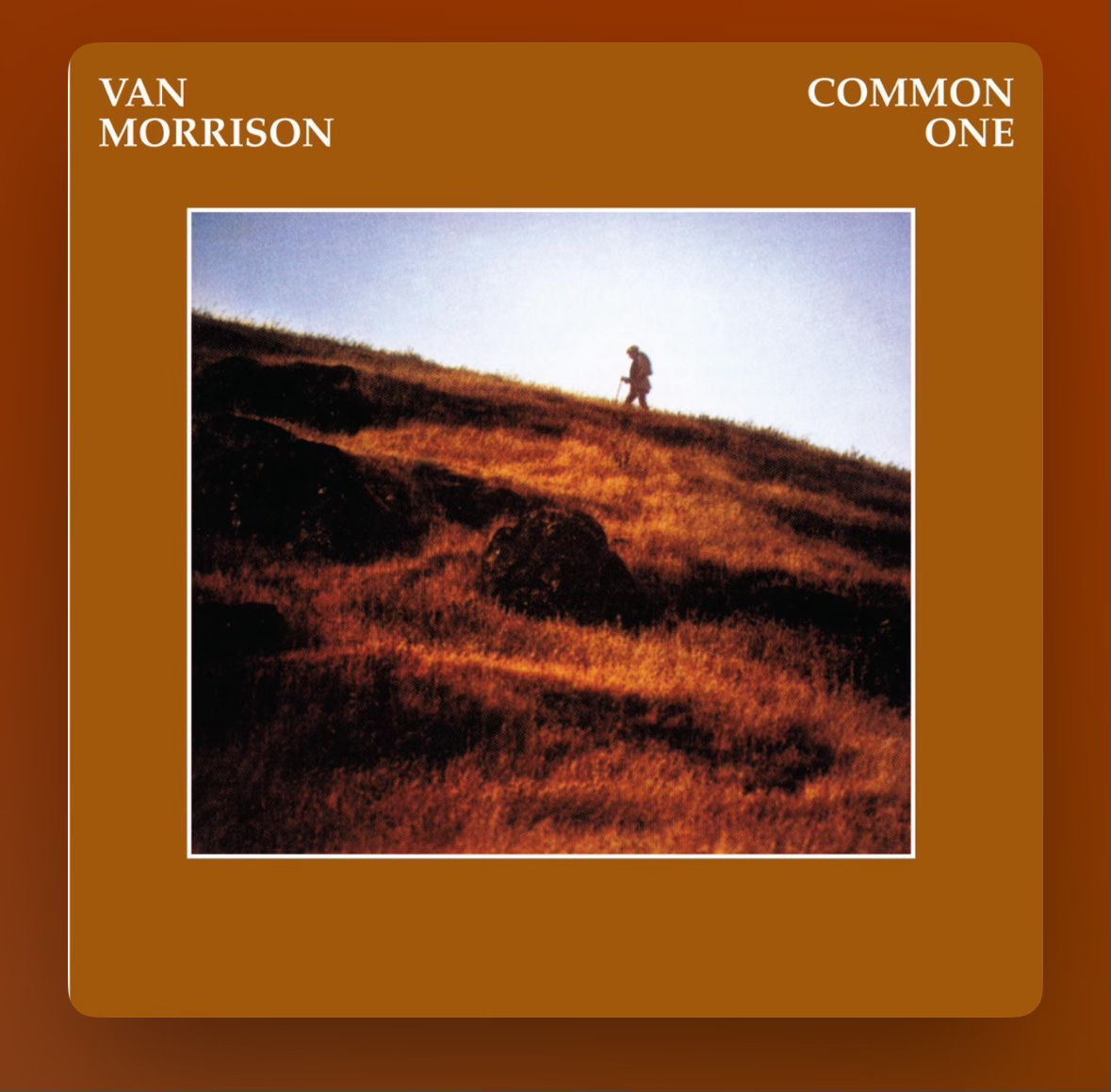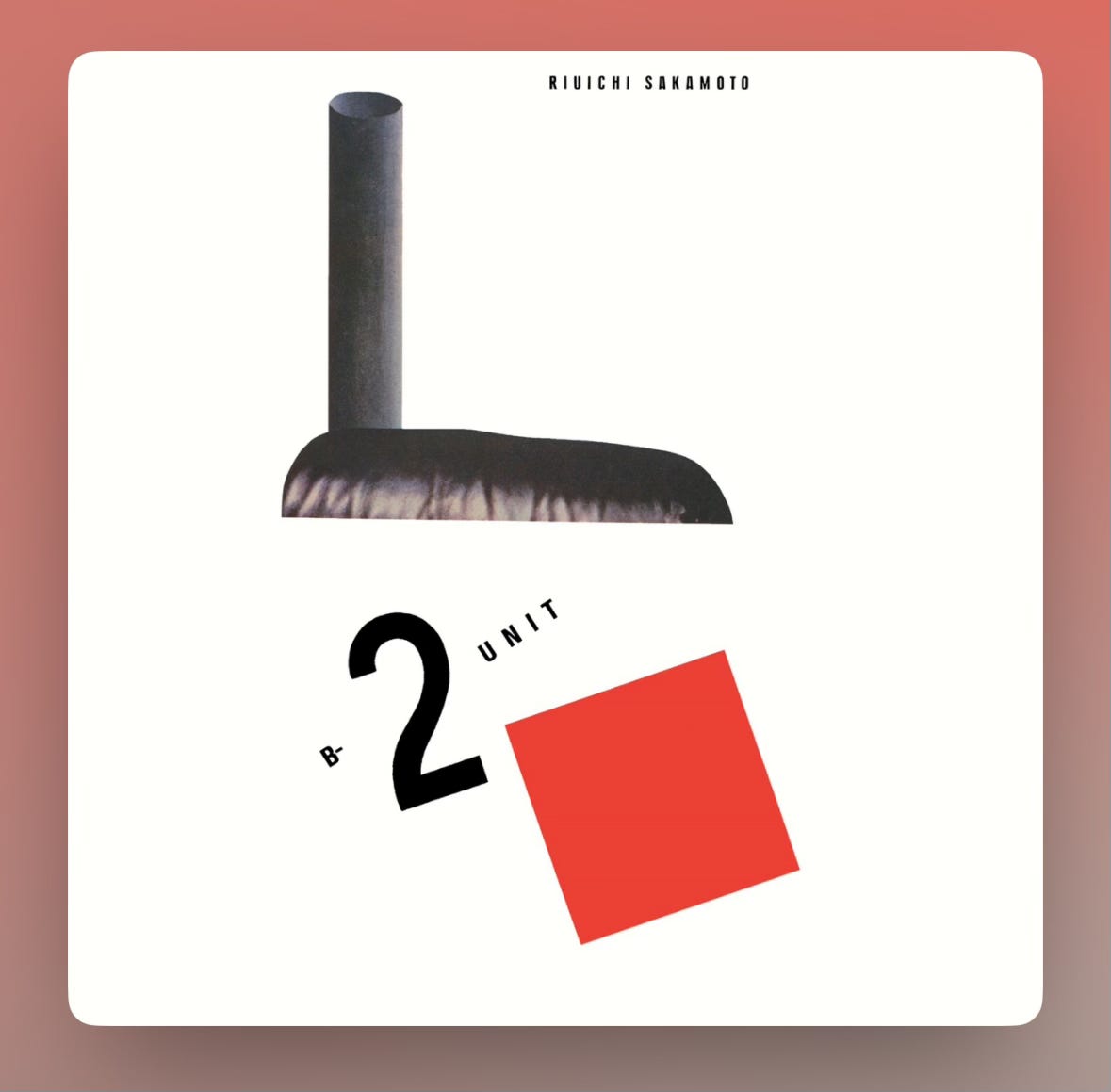Lately, I've been spending some time in 1980. When that year first came around, I had recently turned ten years old, was living in a small town in North Carolina, and had just read The Lord of the Rings for the first time—in my Ballentine paperback edition, which I still have, though I'm not sure that it would survive another reading. I had a Basset Hound named Snoopy and was an only child. My family drove a 1979 Oldsmobile Cutlass Supreme, which would become my own first car about six years later. I think that it cost less than $6000.
Why 1980? I recently stumbled upon The Album Years, a podcast by the English music producers and musicians Steven Wilson and Tim Bowness. In each episode, they choose a year and discuss their favorite records. Their emphasis is not on the most popular albums from the year, but rather on albums that were off the beaten path or were neglected or later proved to be influential. Since I tend to start things from the beginning, I started with their first episode, on 1980. Wilson and Bowness are a couple of vital years older than I am—vital because they came into their musical awareness sooner than I did. Many of the albums that they listed I didn't discover until later, and some I had never heard at all. And they are English, while I am American, and so our musical contexts were somewhat different. (Perhaps in the future, I will write about 1984 and 1985, when I was living in the UK and was exposed to some different sorts of music than in the States.)
In fact, in 1980, I was an absurdly contrarian child in terms of my musical taste. I defied my peers by sticking almost exclusively to the classical music that my father played at home (along with some soundtracks of musicals, and folk and jazz oddities from his record collection—The Smothers Brothers, the Kingston Trio, Al Hirt). I didn't find my way to my first pop music obsession, the Beatles in general and Paul McCartney in particular, until about 1982, with the release of Paul's Tug of War, the first pop record that I bought with my allowance money.
However, a number of albums released in 1980 later became favorites and would serve as the soundtrack for much of the following decade—David Bowie's Scary Monsters, Peter Gabriel's untitled "Melting Face" album, Zenyatta Mondatta by the Police, and U2's Boy. As I listened to Wilson and Bowness wax poetic about their favorite albums, I began to assemble a playlist of some of them, and then I began to add some of my choices that they did not mention (Bruce Springsteen's The River, Stevie Wonder's Hotter than July, and Prince's Dirty Mind, among others).
The resulting experience of listening to the music was a strange mix of nostalgia, new musical discovery, and contemplation of the child that I was at the time.
In 1980, Jimmy Carter was entering the final, depressing year of his presidency, with the continuing Iranian hostage crisis, the standoff with the USSR over the invasion of Afghanistan, and an economy that was stubbornly stuck in the doldrums. We had a mock presidential debate in school, and I was one of the moderators. I asked the student playing Ronald Reagan how it would be possible to cut taxes, balance the budget, and dramatically increase military spending all at the same time. He was flummoxed. (Small victories.) My teacher that year told me that my parents were a bad influence on me because they were liberal. I had learned to admire Carter from my parents, and I'm quite sure that I cried on that fateful night of Ronald Reagan's landslide in November. I was sure, as sure as a ten-year-old could be (almost eleven by Election Day), that this meant that there would be a nuclear war very soon.
Thankfully, that did not happen, though we are still dealing with the policy shifts that resulted from that election and the eroding of the social safety net and of the middle class. But that's another story. I knew none of that in 1980. None of us did.
By the way, a belated happy 100th birthday to Jimmy Carter!
What did I know in 1980? Not much. I knew that I loved to read and to listen to music, and that's still most of what I know in 2024.
So let's assess how 2024 John responds to some music from 1980, the year of ten-and-eleven-year-old John. Over the next couple of weeks, alternating with the Jonathan Swift posts, we will discuss our 1980 playlist, along with a few things that were happening that year and how they appeared to me as a child. Obviously, I haven't included all of the great albums from that year, so if you have your favorites, please note them in the comments.
Here is the playlist; I'll note as I go through the list which ones were Wilson's and Bowman's selections and which ones were my additions:
1980 on Apple Music
1980 on Spotify
Van Morrison: Common One
Wilson and Bowman love this record—which gives them tremendous hipness cred, since it contains no familiar songs, was dismissed by most critics, and is little known even to Van Morrison fans. Indeed, not only had I never heard it before: I had never heard of it. Wilson points out that it sounds like very little else that was going on musically at the time, though I would argue that the production style and the electric piano dates it fairly accurately, even if there is not a disco ball or a post-punk haircut in sight. But the point is (and this I agree with) that this is an album entirely unconcerned about charting hit singles.
Listening to the record was a pleasant surprise. I admit to not being the biggest Van Morrison fan, but this is an interesting and continuously engaging album for its sonic textures as well as its vocal and instrumental performances. Two of the tracks—"Summertime in England" and "When the Heart is Open"—clock in at more than fifteen minutes each and owe as much to jazz traditions as they do to rock, with Van's vocal improvisations and the sonic nod to Miles Davis's proto-ambient In a Silent Way on "When the Heart." The album was recorded in just one week, and this probably contributes to its improvisatory sensibility. "Summertime in England" name checks my favorite poets (Wordsworth, Coleridge, and Blake), so I'm a sucker for it. The middle tracks turn more towards an R&B flavor and so show some versatility, but the main interest here lies in to the two long tracks, which are very impressive.
What comes through, ultimately, is an impression of an artist of uncompromising independence, neither trying to recapture his earlier popular successes nor vainly hopping onto a new musical bandwagon. Like him or not, Van Morrison is his own man.
Talking Heads: Remain in Light
Wilson and Bowman include this album, but I would have done so if they hadn't. The first time I remember hearing Talking Heads was about 1983, when someone played "Burning Down the House" on the school bus—a tune that seared itself into my brain the first time I heard it. It wasn't until a couple of years later (say, 1986?) that I finally heard Remain in Light—late to the party, as I often was in the 80s. But what an album! A full six years before Paul Simon's much heralded Graceland, Talking Heads had fully embraced African rhythms and Afro-rock rhythm-guitar style, which they blended with their New Wave sensibilities to create an entirely original sound, which on this album included Adrian Belew’s astonishing, chaotic guitar playing. According to Wilson, Thom Yorke of Radiohead has called Remain in Light his favorite album of all time, and this totally tracks if you are familiar with Radiohead’s music.
Of course, the album produced one immortal single, though it perhaps didn't catch fire until the live version featured in the concert film Stop Making Sense appeared a few years later: "Once in a Lifetime." David Byrne completely captures the bizarre feeling of arriving at an adulthood for which one feels entirely unprepared:
And you may find yourself living in a shotgun shack,
And you may find yourself in another part of the world,
And you may find yourself behind the wheel of a large automobile,
And you may find yourself in a beautiful house, with a beautiful wife,
And you may ask yourself, "Well, how did I get here?"
Indeed. "My God, what have I done?"
"Same as it ever was."
The Durutti Column: The Return of The Durutti Column
I had no idea what to expect here. Wilson and Bowness love this album, but I had never even heard of it, despite a lifetime of actively seeking out new things to listen to. When the initial beat, a heavily reverbed early drum machine, comes in after some introductory simulated birdsong in "Sketch for Summer," I thought that I was in the post-punk world of Joy Division or New Order, but this was not the case. Though it may be categorized in the post-punk section of the record store, this is a band with its own, unmistakable, and remarkably subtle and elegant sound. Instrumentally, some of the guitar effects may remind one of the early records of The Cure, but there are no vocals, and guitarist Vini Reilly is able to stretch out into jazz-like territory, though with a less complex harmonic vocabulary.
In terms of marketing aesthetics, we are still in the world of punk: the album was originally released in a sandpaper sleeve so that it would destroy the album next to it on the shelf. Nice.
Ryuichi Sakamoto: B-2 Unit
Sakamoto has proven to be one of the most significant composers of the last fifty years, winning numerous awards, composing blockbuster film scores, and essentially inventing a number of new modes of electronic music. B-2 Unit sounds like nothing else, with its analogue synthesizers and sparse, deadpan vocals. In 1980 it must have sounded like music from another planet. I have listened to a lot of Sakamoto, but I admit to never having heard this album until Wilson recommended it. Don't listen to it expecting catchy tunes and danceable rhythms, nor is it a comforting listen: this record is all about creating edgy soundscapes and exploring the sonic possibilities of what was new technology at the time. If you approach the album with that sort of openness, it can be a rewarding experience that opens up more with each listen.
This weekend, we will return to Brobdingnag with Gulliver and Jonathan Swift, and then next week we will continue our exploration of the musical world of 1980, with Simple Minds, Prince, and more.
Thanks for reading, from my fancy internet reel-to-reel player machine to yours.








Please note: the Apple Music link to the 1980 playlist was incorrect when this was first published. I have corrected this error, so both links should work now. https://open.substack.com/pub/johnhalbrooks/p/1980-part-one?r=kyg3a&utm_campaign=post&utm_medium=web
Another terrific column with your history--that car, your childhood, Carter and then Van Morrison and so much more. You are, indeed, one of my favorites here.